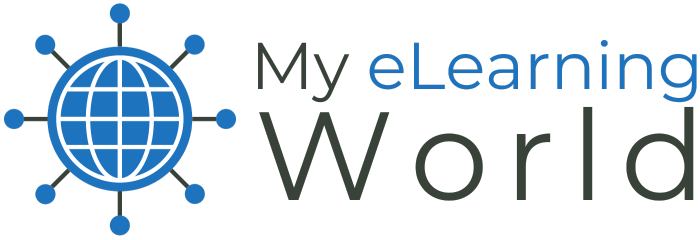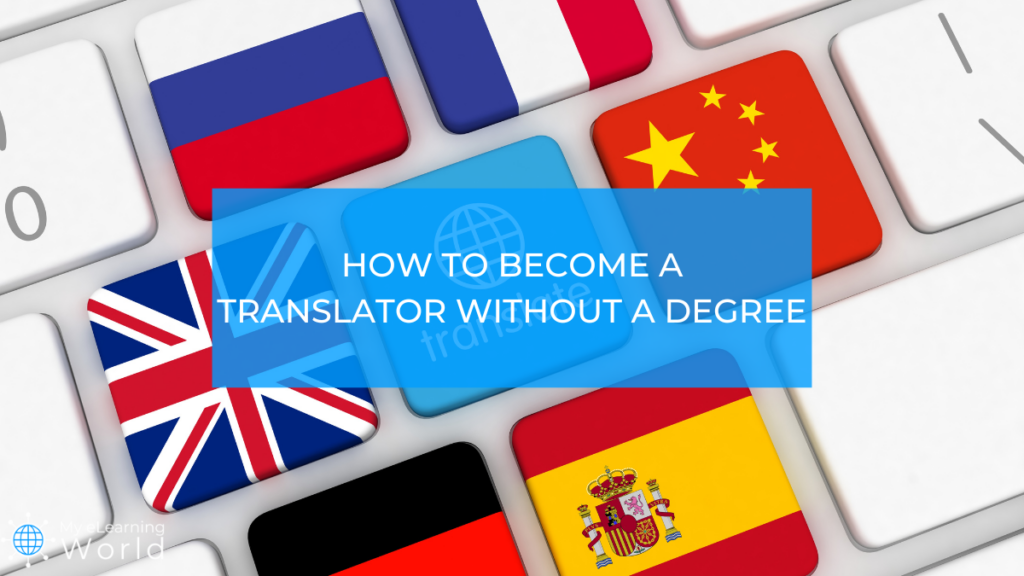Thinking about pursuing a career as a translator but don’t want to go to college? Wondering how to become a translator without a degree?
While language is a great human tool that allows communication with others, not everyone is blessed with the ability to speak multiple languages. For those that are multilingual, this gives rise to many great career options, one of which is translation.
Translators are always in high demand, and the career opportunities are numerous and quite diverse.
Imagine bridging language barriers, connecting cultures, and immersing yourself in a profession that thrives on linguistic finesse.
If you’ve always been interested in languages but never pursued a degree in translation, you may be wondering if it’s still possible to become a translator.
The good news is that it is totally possible to get the training you need to start a career as a translator, especially with online learning platforms like Skillshare.
Whether you have a passion for languages, possess exceptional linguistic skills, or simply enjoy unraveling the intricacies of communication, this is your opportunity to explore a fulfilling career as a translator. We firmly believe that dedication, continuous learning, and a well-crafted plan can unlock the doors to success in this field.
So, fasten your seatbelts as we embark on a journey to outline the step-by-step roadmap for becoming a thriving translator, without the burden of a traditional college degree.
Here’s what you need to know about how to become a translator without a degree.
Disclosure: Some of the links in this article are affiliate links, meaning at no additional cost for you, we might get a commission if you click the link and purchase.
What is a Translator?
A translator is someone who converts text or speech from one language to another.
This may seem like a simple task, but it’s actually quite complex. A translator needs to have an in-depth understanding of both languages in order to accurately convey the meaning of the original text.
They also need to be aware of any cultural differences between the two languages.
For example, some words or phrases may have different connotations in different cultures. A good translator will be able to take this into account and choose the best translation that conveys the original meaning of the text.
Translators work in many industries, including legal, medical, business, and government. They may even freelance or work for a translation agency.
The day-to-day work life of a translator can be quite varied. Some days they may be working on long documents such as contracts or legal papers. On other days they may be translating shorter pieces such as website content or marketing materials. Or they may even be on hand at live events, translating speakers in real-time. There are even opportunities to work on more creative projects, such as translating books or films.
What Skills Do You Need to Become a Professional Translator?
The job of a translator is not an easy one, and it can’t be done without certain skills. The industry is challenging and to succeed, here are some top skills you should either have or aspire to have:
- Language. Advanced technical knowledge of the languages you wish to translate is a must. This includes not only being able to read and write the language, but also having a strong grasp of grammar, vocabulary, and idiomatic expressions. It also means having the skill to be able to understand the nuances of both languages to accurately translate the meaning of the original text. Computer knowledge is also an important technical skill, as most translations are done using computer-assisted translation tools.
- Research. No matter what the project is, a good translator will always do their research before starting to work. This means being able to quickly and accurately find relevant information on the topic at hand. This might involve reading articles, watching videos, or even talking to experts in the field. The goal is to make sure that you have a strong understanding of the subject matter before you start translating.
- Sound judgment. There will be times when a translator is faced with multiple ways to translate a certain word or phrase. In these cases, it’s important to be able to use sound judgment in order to choose the best translation. This might involve taking into account the context of the text, the target audience, or even the client’s preferences. The goal is to always choose the translation that best conveys the original meaning of the text.
- People skills. Becoming a good translator also requires excellent people skills. This is because translators often have to deal with clients from all over the world, who might have different cultural backgrounds and expectations. It’s important to be able to build good relationships with clients, in order to ensure that they’re happy with the final product. Good communication skills are essential in this role, as is the ability to listen carefully to instructions.
A Step-by-Step Guide to Becoming a Translator

Degrees cost not just money, but time, several years to be specific. Countless professional translators have managed to find great success without one possessing a formal degree. If you’re passionate about translation and determined to start your career without furthering your education, here’s a step-by-step guide on how you can make it happen:
1. Take Online Courses That Teach the Skills to be a Translator
 Skillshare
Skillshare
Skillshare is the ultimate website for learning just about anything imaginable. You can explore 30,000+ online classes across countless categories, from business to hobbies and more.
For the sake of this guide, we’re assuming you already know how to speak the second language you want to translate content in. Remember, there’s a difference between being able to understand or even speak a second language and knowing the structure and rules of the language inside out. In order to become a translator, it’s essential to have a strong understanding of grammar, vocabulary, and syntax.
Assuming you have this part down, you still need to get training in the specifics that go into working as a translator.
Online courses tailored specifically for language enthusiasts on platforms like Skillshare (free 30-day trial) open a gateway to an affordable, convenient, and flexible education. Aspiring translators can leverage the vast opportunities offered by online learning to achieve their career aspirations.
One of the most compelling advantages of taking online courses on platforms like Skillshare is the affordability factor. Traditional university degree programs often come with hefty tuition fees that can be prohibitive for many. In contrast, Skillshare offers a wide array of translator-focused courses at a fraction of the cost, making it an accessible option for language enthusiasts of all backgrounds.
Convenience and flexibility are also key pillars of online learning for aspiring translators. Online courses provide the freedom to tailor your learning experience to fit your schedule and commitments. Whether you’re a working professional, a stay-at-home parent, or a student, you can access course materials anytime, anywhere, and progress at your own pace.
Furthermore, online courses on platforms like Skillshare provide practical, hands-on training that is directly applicable to the world of translation. With video tutorials, interactive exercises, and real-world projects, learners can actively build the skills, techniques, and industry-specific knowledge needed to thrive in the competitive world of translation.
Check out our Skillshare review for a whole lot more info on all that the platform offers.
Click here to try Skillshare free for one month.
2. Start Freelancing
One of the best ways to get started in the translation industry is to start freelancing. This will give you the opportunity to build up a portfolio of work, as well as gain some valuable experience working with clients as you build your own translation business.
There are a number of ways to find freelance translation work, such as online job boards, social media, or even through personal connections. Once you’ve found a few potential clients, be sure to put your best foot forward by putting together a strong proposal.
In your proposal, be sure to highlight your language skills, as well as any relevant experience you might have. You should also include some samples of your work, to give the client an idea of your style and abilities.
3. Invest in Professional Development
Continuing your education is not just for those who want to get a degree. Translators also need to invest in professional development in order to stay up-to-date with the latest industry trends.
There are a number of ways to do this, such as attending conferences and workshops. It’s also a good idea to stay up-to-date with the latest news in the translation industry by reading blogs and articles from respected sources.
Again, online courses are also an excellent way to learn new skills, such as software programs and different language techniques.
By staying informed and investing in professional development, you’ll be able to offer more value to your clients and keep your services current. This will help ensure that you remain competitive in the translation market.
4. Get Certified
While not essential, getting certified is a great way to make your resume stand out from the crowd. There are a number of different certification programs available, such as the American Translators Association Certification or the National Association of Judiciary Interpreters and Translators.
To become certified, you will need to meet certain requirements, such as having a certain amount of experience or passing a proficiency test. Once you’ve met the requirements, you’ll generally need to pay a fee and submit an application.
A Final Word on Becoming a Translator without a Degree
A career as a translator is a great way to use your language skills to earn a living. Translators get to work with a variety of clients on a wide range of projects, making it a highly rewarding career.
While a degree is not essential to become a translator, there are a number of things you can do to increase your chances of success. These include studying the language academically, investing in professional development, and building up a strong portfolio.
By following these tips, you’ll be well on your way to becoming a successful translator without a degree.
Do you have any questions on how to become a translator without a degree? Let us know in the comments below!


